Published

Alon Bar
Product Marketing Manager at Check Point
A bank’s applications drive the business. And as they evolve and grow, they expose more APIs causing the attack surface to grow as well. see more
- 07:00 am
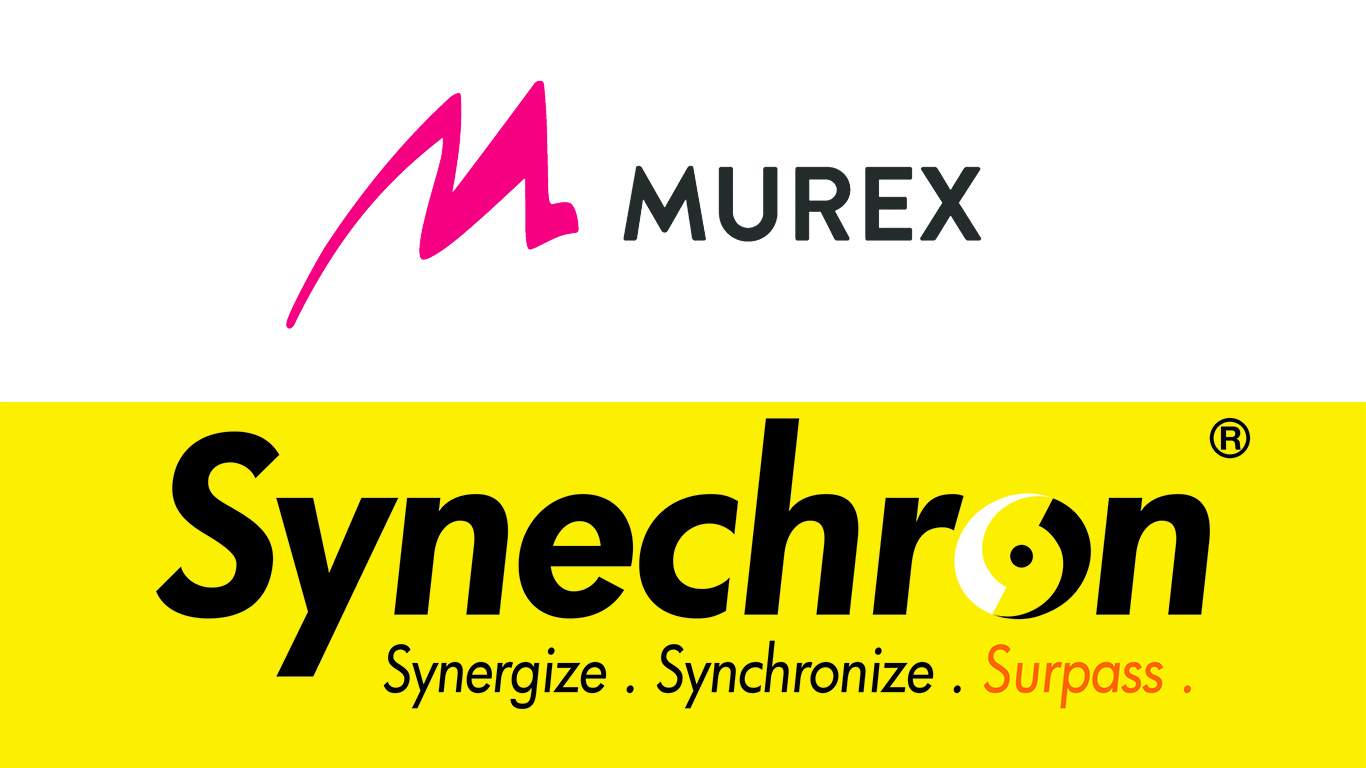
Murex, the global leader in trading, risk management and processing solutions for capital markets, is pleased to announce a new version of the MX.3 platform has been deployed at EDF. Murex was closely supported in the project by its partner, Synechron, the systems integrator responsible for updating and maintaining the Murex platform.
EDF, the leading producer and supplier of energy in France and a global leader in low-carbon energy production, utilizes the MX.3 platform through a managed service offering for the administration of its capital markets operations. The MX.3 platform is considered critical at EDF and is one of the most visible applications within the company. Teams managing MX.3 are made up of financial and technical experts who contribute as needed to support the business functions.
The deployment project, a technology upgrade on existing features, was completed on budget and on time within nine months.
Close collaboration between the EDF, Murex and Synechron teams facilitated user requirements identification, scope definition, testing and deployment to production, all within a remote working context. These circumstances pushed the teams to rethink deployment methods and adopt new collaborative tools.
“A project of this magnitude with this timing requires comprehensive expertise and context-specific knowledge,” said Romain Kerfant, project manager for the Murex application at EDF. “Thanks to their longstanding presence in this space, Synechron and Murex have been able to respond to our needs quickly and efficiently. All application users are satisfied with the upgrade and now benefit from new features and a more ergonomic interface. EDF operational teams now benefit from the full capabilities of Murex technology. The excellent flexibility that Murex and Synechron have been able to implement in variable health and technological contexts is a strong factor in the success of the project.”
Post-update, EDF users benefit from an optimized interface and more fluid ergonomics overall, providing greater speed and major time savings as they execute daily investment activities. The solution also offers an integrated view of all positions and market data for informed, rapid decision-making in uncertain, volatile markets.
“Over a period of 10 months, Synechron and Murex have deployed a sophisticated solution that enables EDF users to achieve a high level of productivity,” said Luc Testud, business manager of the France and Benelux regions at Murex. “From the outset, the upgrade project was conceptualized and designed to meet the requirements of traders and IT teams. This new MX.3 version will allow EDF to continue its rapid growth, with full confidence it has partners capable of adapting to its business and technological requirements."
Synechron and Murex orchestrated the change management from the start of the project, which facilitated training sessions based around understanding the new solution and implementing test versions for easier handling after deployment.
The new platform meets EDF's IT benchmarks: its level of compliance and its interoperability with the IT systems already in place comprehensively address the company's strong technical and functional requirements. The new MX.3 version allows for more scalability and incorporates DevOps and Agile methodologies. The version also institutes continuous and end-to-end testing that accurately measures end-user experience throughout the project.
“Synechron has managed the Murex platform at EDF since 2005. We are delighted with our continued collaboration with EDF and Murex,” added Jawad Cherkaoui, Senior Director, Head of System Integration at Synechron. “This partnership between our three teams has provided the technology and support necessary to meet the current and future needs of our client. Our partnership grew stronger throughout the project, and we are proud to have been able to effectively lead this change management in a difficult public health context. "
Related News
- 09:00 am
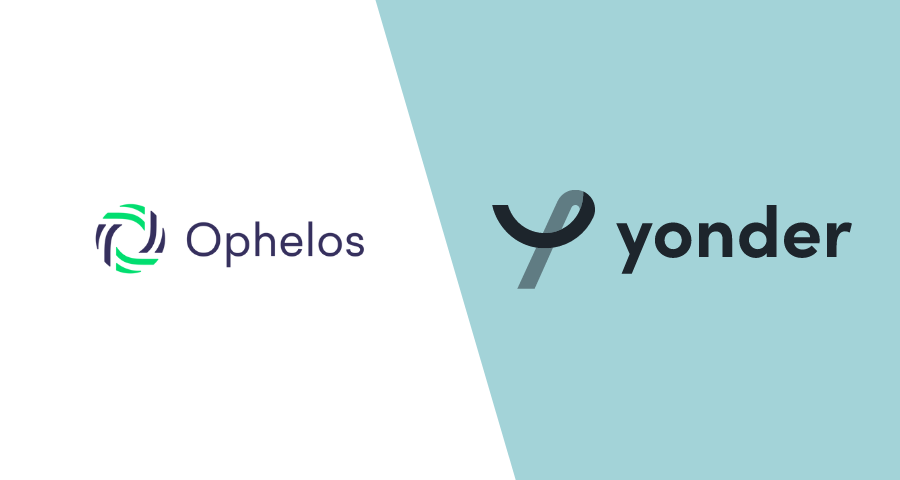
The partnership will ensure customers will benefit from fairer, more approachable ways to manage their debts
- Ophelos’ debt resolution platform will give Yonder customers access to tailored repayment plans to resolve outstanding balances
- Proprietary machine learning technology will help Yonder to identify and support potentially vulnerable customers
- Ethical debt resolution process will support Yonder as it works to rebuild the modern credit card
Wednesday 4th May 2022, London, UK - Ophelos, the technology firm building fairer debt resolution for businesses and their customers, announces its partnership with Yonder, a lifestyle credit card for millennial audiences.
The partnership will see Ophelos transform how Yonder manages the support of customers who may find themselves in arrears. The startup, which is dedicated to building a modern credit solution, selected Ophelos as it reflected Yonder’s business values centred around fairness, transparency and customer respect. Ophelos’ machine learning driven debt resolution platform will help Yonder to identify and support more customers in financial difficulties, resolving more accounts in an autonomous manner. Customers will also be given the ability to resolve their outstanding balances in more manageable instalments via personalised repayment plans.
Founded in 2021, Yonder is a business rebuilding the modern credit card from the ground up. With approximately 5m people in the UK defined as ‘credit invisible’, Yonder utilises Open Banking to assess credit suitability and enables these individuals to apply for a credit card without a UK credit score. With barely half of the 13m millennials living in the UK owning a credit card product, Yonder wants to improve the perception of its offering by educating users on how it can be used effectively and responsibly - with its app explaining when and how interest is paid, as well as flagging if customers aren’t meeting recommended repayments.
Amon Ghaiumy, CEO and Co-Founder of Ophelos:
“Yonder is a prime example of the type of business we aspire to work with - transforming access to finance for millions of ‘credit invisibles’. By taking an ethical and technology-first approach to debt resolution with Ophelos, Yonder can ensure their customer-first approach is reflected across the entirety of their business.”
Tim Chong, CEO and Co-founder of Yonder:
“Working with Ophelos was an obvious choice for us, and a natural extension to our offering at Yonder. We’re working hard to build a financial product that genuinely works for our customers and their lifestyles, but also want to be the most supportive organisation we can around circumstances that are out of our control. Ophelos’ machine learning capabilities will be invaluable for us to identify and support our customers that may find themselves behind on payments, while building positive relationships around resolution and their financial health.”
Related News
- 05:00 am

Investment and saving app Plum has launched a new stock investing feature that allows customers to invest in fractional company shares, commission-free, making it one of the UK's most competitively priced investment platforms.
For the first time ever, Plum’s customers will have access to some of the world’s best-known companies, with +500 top US businesses like Apple, Tesla, Nike and Microsoft included on release, and another 500 firms to be added imminently.
For Plum users, this means they’ll have more freedom to balance their portfolio, plus they can build confidence in the process of investing by backing the brands that they know and trust.
Victor Trokoudes, CEO & co-founder of Plum comments: “It was important to us to offer our new stock investing feature commission-free. Accessibility and simplicity are standards that we constantly strive to achieve, so we feel this was an important representation of our values.
“Ultimately, we want to help our customers make their money go further, and encouraging a balanced approach to investing is one of the most effective ways we can do this. People may think that investing is too complex or just not for them - Plum is here to give customers a helping hand with automated tools that make it simple to get started.”
The introduction of stock investing is a strategic move that is intended to help Plum consolidate its position in the investment space, while moving ever closer to the company’s stated goal of becoming an all-in-one shop for its customers’ financial needs.
Victor continues: “As a teen, my parents encouraged me to invest a small amount of money so that I could learn about the value of the stock market first-hand. Even though I understood the value of long-term investing, I didn’t keep it up. Today, those shares are worth 300x the price I paid, and I wish I’d held onto them.
“We created Plum for people who want to better manage their finances - but it perhaps slips their mind, or seems like too much time or effort to figure out.”
Plum has seen strong adoption from first-time investors and they know that their customers want to build a more diverse portfolio, including companies that matter to them.
The addition of stock investing complements Plum’s existing choice of 12 themed investment funds, which are linked to particular sectors or indexed against specific stock markets. With an ISA or GIA, customers pay just £1 per month subscription and an annual average of 0.48% for fund management and platform fees.
There is a 0.45% currency conversion markup and a small regulatory charge applied to each trade. As an illustration, a Plum customer buying and selling one share worth £100 would only be charged a total of £0.90 in fees.
Plum has already made a strong start to 2022 with over 130,000 app downloads across Europe in January alone and it is now established as a major player in the European investment scene.
Related News
- 02:00 am

Talent.com Inc., the fast-growing player in next-generation job search platforms, which recently raised a $120 million US Series B investment, today announces two senior appointments to its board of directors: Serial tech entrepreneur Chris Arsenault, and experienced Silicon Valley executive Lindsey Argalas.
With more than 25 years of operating and investing experience, Chris Arsenault has become a key pillar of Canada’s tech ecosystem. He co-founded venture capital firm Inovia Capital in 2007, leveraging his entrepreneurial instincts to shape its culture, vision, and path forward. He played an important role in helping build many of the firm’s most valuable companies, including Lightspeed, Luxury Retreats, Sonder, and AppDirect, serving as a board member and coach to the founders.
Through his decades of leadership and relationship building, Arsenault has developed an outstanding track record of identifying high-potential companies early on, maximizing deal value, supporting management teams as they scale, and managing paths to exit.
Chris Arsenault, Founding Partner of Inovia Capital, says, “Recent global events have seen an increased demand for talent among businesses everywhere, and Talent.com has rapidly grown to meet that demand. It’s now one of the largest international platforms for employers to source and recruit, and I’m delighted to join the company at this stage in its growth. I look forward to supporting it in its ambition to redefine the recruitment landscape.”
For more than 20 years, Lindsey Argalas has served as CEO and General Manager of several major global platforms – consumer technology, SaaS, and Fintech, and has invested in, launched, and run businesses in the US, Asia, Europe, and Latin America.
Until recently, Argalas was Chair of Mouro Capital, a $400m fintech venture capital fund. She also served on the board of digital-only bank Openbank, as a non-executive director of Santander UK, and as a member of the World Economic Forum’s steering committee on digital currencies. As an operating executive, she most recently served as CEO of the consumer business of PagNxt, the payments technology company she carved out from Santander, where she oversaw P2P/P2M, international transfers, digital wallet, crypto, and financial inclusion solutions.
Lindsey Argalas, “These are extraordinary times for the recruitment industry. Talent.com is in a very strong position to grow, quickly adapting to meet the demands of a rapidly changing market. I’m thrilled to be part of that growth and am excited about what the future holds for the company.”
These appointments follow a recent $120 million US Series B funding round led by Inovia Capital, with the participation of Caisse de dépôt et placement du Québec (CDPQ), Investissement Québec, Climb Ventures, BDC Capital, Fondaction, and HarbourVest Partners. In its next phase of growth, Talent.com intends to expand its user-centric, programmatic job search platform by improving the relevance and efficiency of job searching, recruiting new team members globally, investing in product development, further establishing the brand, and scaling its newest solutions for SMBs.
“Between them, Chris and Lindsey bring years of experience of working with some of the most forward-thinking companies in the tech space,” says Lucas Martínez, co-founder and co-CEO of Talent.com. “Their experience and insight will be invaluable as we continue to grow, and we look forward to working with them both as we take the business to the next level.”
Talent.com currently employs more than 400 people globally. Its proprietary technology matches job seekers with relevant job opportunities, while its pay-per-click model helps recruiters easily adjust their job advertising campaigns based on performance
Related News
- 09:00 am
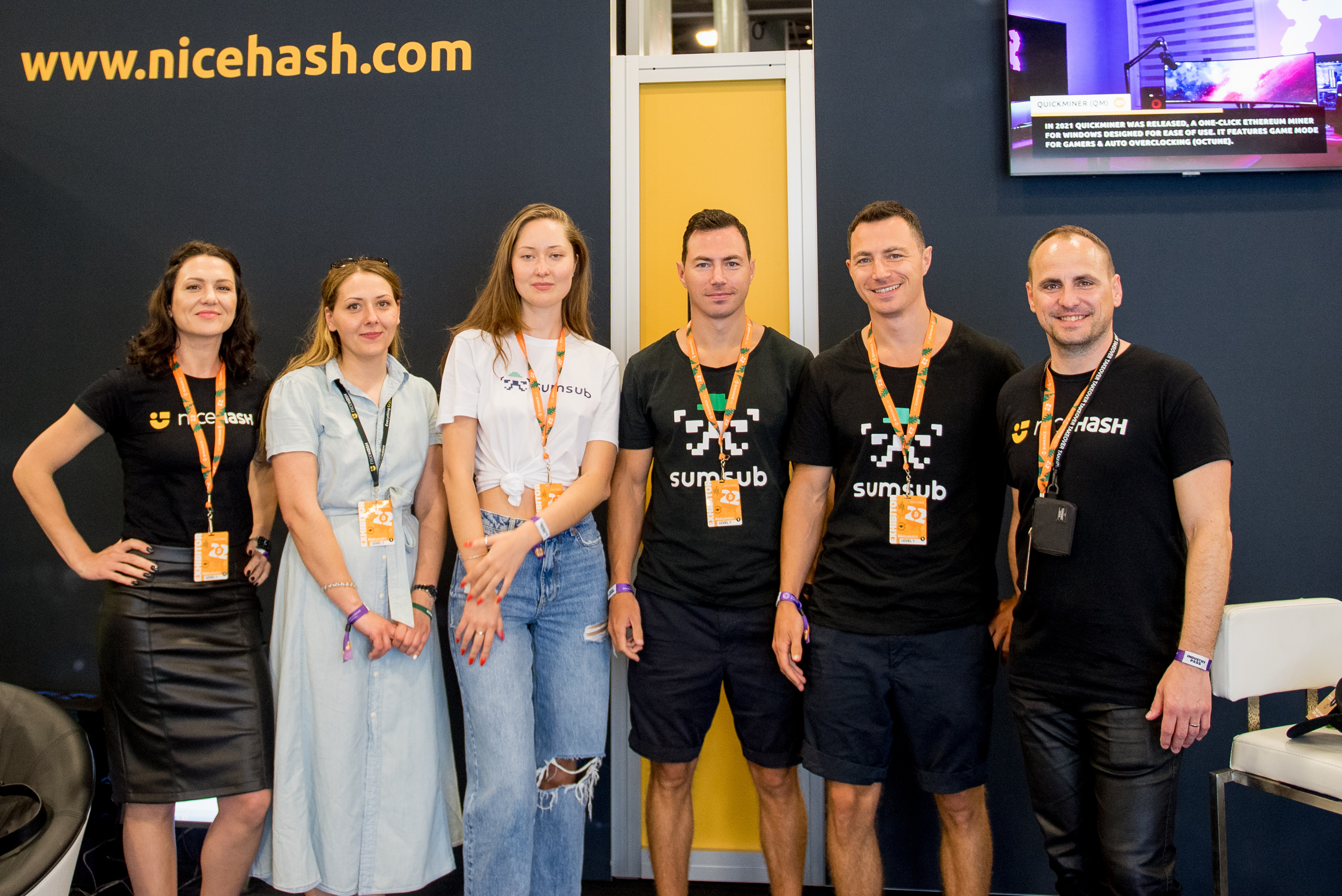
Sumsub and NiceHash share the results of their partnership.
Sumsub, a global identity verification and KYC/AML compliance provider, is sharing the results of their partnership with NiceHash, the world’s leading cryptocurrency mining platform with 2.5 million users worldwide.
NiceHash operates in 190 countries, all of which have different crypto regulations. Needless to say, this created significant compliance challenges for the company. To meet this challenge, NiceHash needed an all-in-one solution to handle all the regulatory specifics. Plus, they wanted the ability to customize user verification flows to fit their various product offerings.
After conducting in-depth research on different KYC providers, NiceHash ultimately decided to go with Sumsub. They were hooked on the short processing time and high verification speed of Sumsub’s solution, along with its user-friendly interface and high level of customer support.
NiceHash started working with Sumsub in January 2020. The whole integration process took less than 2 months. Since then, they’ve checked about half a million users.
“Sumsub helped us a lot with their highly sophisticated KYC/AML solutions. We wanted user onboarding to be as straightforward and as clear as possible” – says Nikolina Travner, CCO at NiceHash.
Replacing manual review with Sumsub’s automated solution enhanced user onboarding profoundly. NiceHash has been able to lower security incidents and fraud attempts by as much as 80% with the help of KYC features such as liveness detection and watchlist screening.
NiceHash continues to innovate in the crypto mining space, and has some big product launches coming to their global customer base. In addition, they are going to bring NiceX, their crypto exchange service, to the US market.
Related News
- 06:00 am
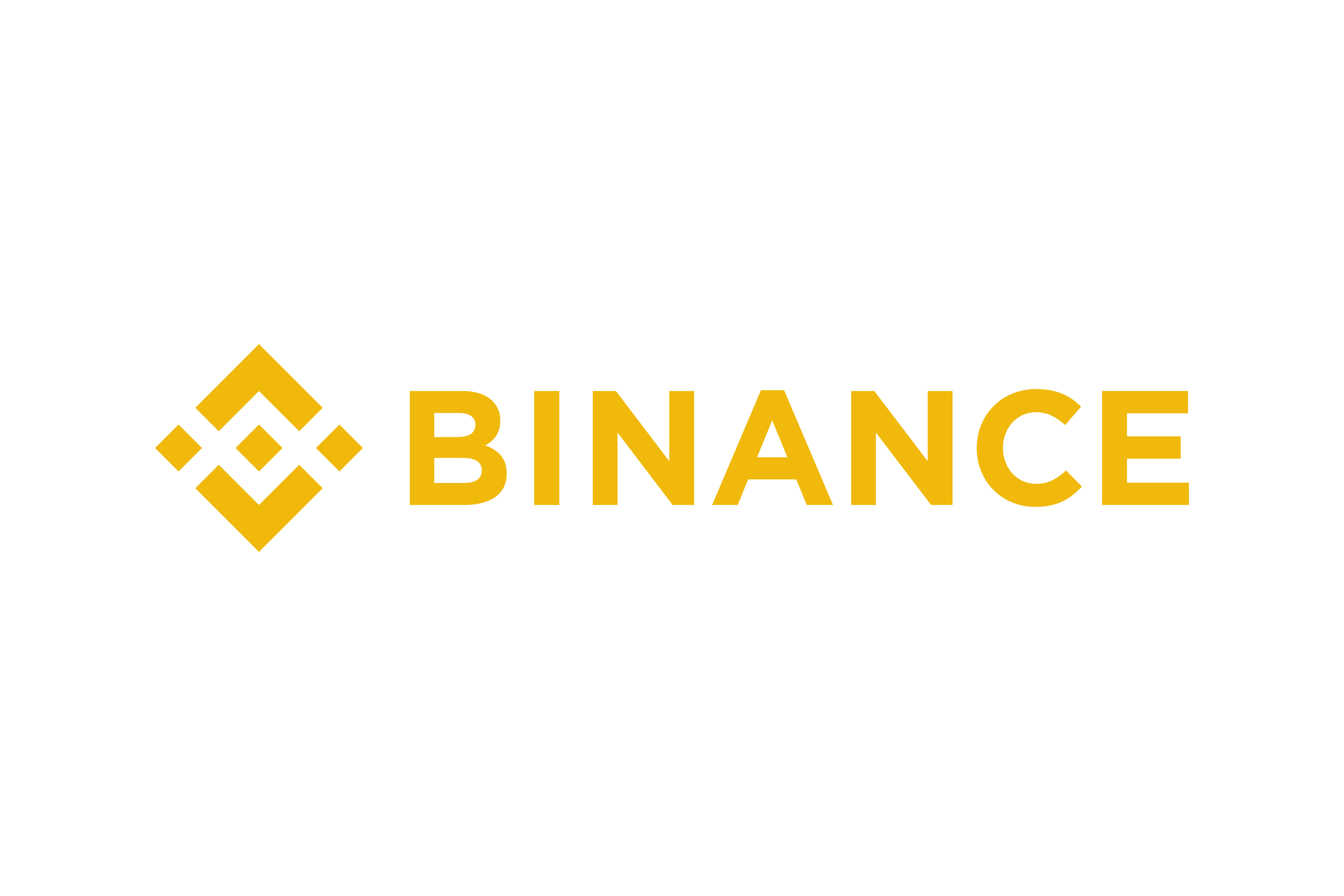
Binance is committed to equipping crypto beginners with resources for lifelong financial and career development |
Several Africans continue to live in poverty with minimal access to financial opportunities, quality education or good jobs. Binance (www.Binance.com), the world’s largest cryptocurrency exchange and blockchain ecosystem, has taken its efforts to Cameroon and Francophone Africa at large to bridge this gap - as it enables greater financial accessibility for Africans, provides blockchain education as well as guidance on acquiring new skills and avoiding scams in the financial world. Here are some of the steps Binance has taken to equip French-speaking Africans:
Since the launch of the Binance Masterclass Education Series (https://bit.ly/3vFoN2w), Binance has educated over 541,000 Africans about cryptocurrency. Some of these events have been held both offline and online for French-speaking Africans. Séverin Kouam, one of the attendees at the Binance event in Yaounde, Cameroon which was hosted on December 4, 2021 said: "I entered the cryptocurrency field by chance six months ago on the advice of a friend. But until now, I still didn't master the workings of this technology. So this training is very welcome since it allows me to better understand how it works, the benefits but most importantly the risks involved in cryptocurrency so that I don't get fooled while investing my money." Binance also recently hosted its first offline meetup event in Cote D’Ivoire and launched a Crypto Academy, a monthly training program across 4 countries: Benin, Cameroon, Ivory Coast and Togo for a start. This academy is in collaboration with 7 partners as Binance regularly collaborates with local businesses to train and support Africans, as well as empower businesses.
Binance constantly shows Africans the multitude of career options available in the crypto and blockchain space by hosting bootcamps and hackathons where students get to work on real-time projects where they apply the skills they have gained. Some of these students have gone on to become employed in the workforce, build their own companies, start crypto trading and so much more. Binance gives Africans the opportunity to gain meaningful employment, thereby enabling them to be self-reliant and possibly employers of labour. Binance has also provided career and income opportunities right from its platform. For example, users who signed up and were accepted for Binance P2P Merchant Program are now able to provide liquidity for buyers or sellers on the platform, thereby making a living from the comfort of their homes. Merchants complete multiple trades per day and make profits on each trade. Binance P2P (https://bit.ly/3w34lHV) is a safe platform to conduct crypto trades with a robust security framework to ensure users enjoy a safe and secure crypto experience. One of the Binance P2P Merchants, *George said: “I decided to become a Binance P2P merchant after reading up on their mode of operations. I saw how much safer it was when my first trade on the platform was so smooth and fast.” He added, “I have been able to add a car to my garage, and eventually, I’ll be able to get an even better car — all thanks to Binance.”
This is also why Binance was one of the first cryptocurrency exchanges to introduce a secure fund (SAFU) (https://bit.ly/3P8OsZh) to safeguard users in extreme cases and constantly educates its users on safety and security. The company also regularly implements new features to keep users safe. On Binance P2P, there are security updates, verified merchants and user security initiatives. Distributed by APO Group on behalf of Binance. |
Related News
- 07:00 am

America's second largest bank unlawfully garnished the accounts of thousands of its customers
The Consumer Financial Protection Bureau (CFPB) finalized an enforcement action against Bank of America for processing illegal, out-of-state garnishment orders against its customers’ bank accounts. Bank of America unlawfully froze customer accounts, charged garnishment fees, garnished funds, and sent payments to creditors based on out-of-state garnishment court orders that should have been processed under the laws and protections of the states where the consumers lived. Bank of America also violated the law by inserting unfair and unenforceable language into customer contracts that purported to limit customers’ rights to challenge garnishments. The CFPB’s order requires Bank of America to refund or cancel imposed fees from unlawful garnishments, review and reform its system for processing garnishments, and pay a $10 million civil penalty.
“Bank of America imposed unlawful garnishment fees and injured its customers by inserting unenforceable clauses into contracts in an attempt to strip legal rights from families,” said Rohit Chopra. “The CFPB is ordering Bank of America to fix its systems, clean up its contracts, and make its victims whole.”
Bank of America (NYSE: BAC) is a very large national bank headquartered in Charlotte, North Carolina, with approximately 4,100 branches and 16,000 ATMs. It has been designated as a global systemically important bank by the Financial Stability Board, and as of December 31, 2021, the company had $2.5 trillion in consolidated assets, which makes it the second largest bank in the United States. The bank has previously been sanctioned by the CFPB. In 2014, the CFPB ordered Bank of America to pay $727 million in redress to its victims for illegal credit card practices.
Garnishments occur when a creditor takes a portion of an individual’s paycheck, or money from their bank account, to collect a debt. Most garnishments occur following court orders. State laws have limits or “exemptions” that apply to bank account and paycheck garnishments that are usually designed to make sure people have money left to live on following garnishment. The exemptions in this case refer to state laws that limit what types and amounts of funds can be taken from a consumer’s bank account.
Since August 1, 2011, Bank of America unlawfully garnished at least 3,700 out-of-state accounts, and the customers whose accounts were garnished have paid at least $592,000 in garnishment fees. The CFPB found that Bank of America engaged in unfair and deceptive acts and practices that resulted in money from customers’ bank accounts being frozen or taken when the garnishments were not permissible under the state laws where the accounts were located. In addition to the $592,000 in unlawful fees, the company harmed consumers by:
- Deceiving customers about their rights: Bank of America falsely represented to customers that their rights to have certain funds exempted from garnishment were governed by the law of the issuing court’s state. By stating to its customers that it applied the exemption law of the garnishment issuing state, Bank of America misrepresented to customers that their rights to have certain funds exempted from garnishment orders were governed by the laws of the issuing states when, actually, in most states, customers’ own state laws apply.
- Imposing unenforceable clauses in take-it-or-leave-it customer contracts: Bank of America required customers to “direct” it not to contest garnishment orders and to waive the company’s liability for its actions regarding the out-of-state garnishment orders. This prevented customers from pursuing legal claims against Bank of America for improperly handling garnishments. Bank of America also represented to its customers that they waived their right to hold the company liable for improperly responding to garnishment notices; however, account holders have the right to challenge garnishments despite any language in their account agreements to the contrary.
- Failing to adhere to consumer protections governing customers’ bank accounts: Bank of America acted on garnishment orders without disclosing that the accounts were located out-of-state and protected from the issuing courts’ garnishment orders. Bank of America applied the consumer protections and exemption rights of the state that issued the garnishment order and not those of the state where the individual lived. As a result, it improperly held, froze, and eventually turned over its customers’ funds to judgment creditors.
Enforcement Action
Under the Dodd-Frank Wall Street Reform and Consumer Protection Act, the CFPB has the authority to take action against institutions violating consumer financial laws, including engaging in unfair, deceptive, or abusive acts or practices. The CFPB’s order requires Bank of America to:
- Refund at least $592,000 in garnishment-related fees to harmed consumers: Bank of America must refund or cancel all unlawful garnishment-related fees.
- Fix its broken garnishment process: Bank of America must review and reform its system for processing garnishments, and it must notify courts or other garnishment issuers when accounts are located out-of-state.
- Eliminate unenforceable clauses from its contracts: Bank of America must cease including language in customer contracts that purports to limit customer rights to challenge garnishments.
- Pay a $10 million fine: Bank of America must pay a $10 million dollar penalty to the CFPB, which will be deposited into the CFPB’s Civil Penalty Fund.
Learn more about garnishments and consumer rights.
Consumers having an issue with a consumer financial product or service can submit a complaint with the CFPB online or by calling (855) 411-CFPB (2372).
new content block
Nullam id dolor id nibh ultricies vehicula ut id elit. Nullam id dolor id nibh ultricies vehicula ut id elit. Duis mollis, est non commodo luctus, nisi erat porttitor ligula, eget lacinia odio sem nec elit. Nullam quis risus eget urna mollis ornare vel eu leo. Vestibulum id ligula porta felis euismod semper.
new content block
Nullam id dolor id nibh ultricies vehicula ut id elit. Nullam id dolor id nibh ultricies vehicula ut id elit. Duis mollis, est non commodo luctus, nisi erat porttitor ligula, eget lacinia odio sem nec elit. Nullam quis risus eget urna mollis ornare vel eu leo. Vestibulum id ligula porta felis euismod semper.
new content block
Nullam id dolor id nibh ultricies vehicula ut id elit. Nullam id dolor id nibh ultricies vehicula ut id elit. Duis mollis, est non commodo luctus, nisi erat porttitor ligula, eget lacinia odio sem nec elit. Nullam quis risus eget urna mollis ornare vel eu leo. Vestibulum id ligula porta felis euismod semper.
new content block
Nullam id dolor id nibh ultricies vehicula ut id elit. Nullam id dolor id nibh ultricies vehicula ut id elit. Duis mollis, est non commodo luctus, nisi erat porttitor ligula, eget lacinia odio sem nec elit. Nullam quis risus eget urna mollis ornare vel eu leo. Vestibulum id ligula porta felis euismod semper.
Related News
- 09:00 am
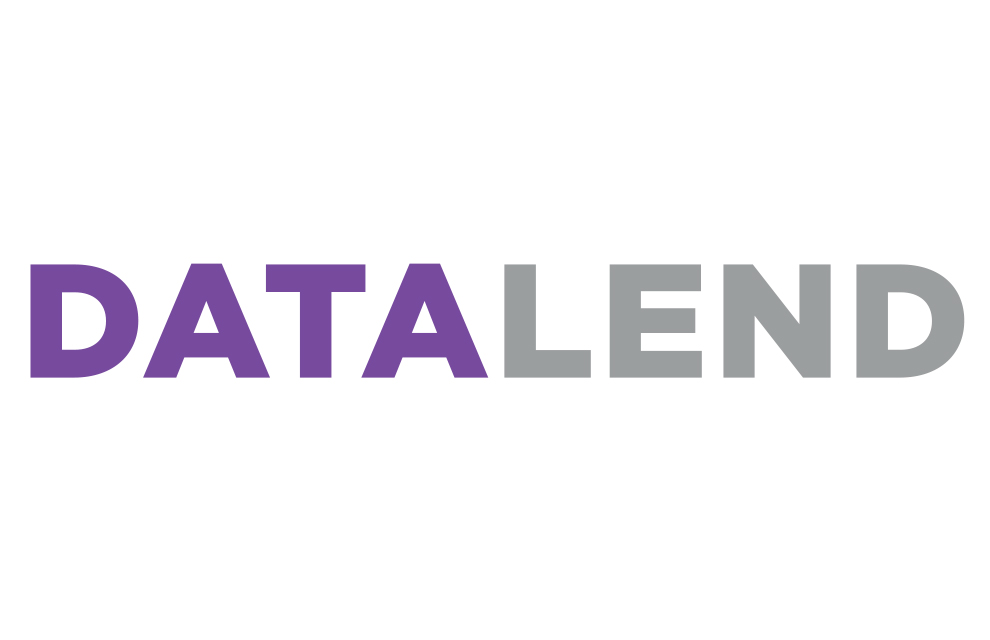
The global securities finance industry generated $828 million in revenue for lenders in April 2022, according to DataLend, the market data service of fintech EquiLend. The figure represents a 20% increase year over year from the $690 million generated in April 2021.
Global broker-to-broker activity, where broker-dealers lend and borrow securities from each other, totaled an additional $229 million in revenue in April, a 16% increase from 2021.
According to DataLend, the increase in lender-to-broker revenue over 2021 was driven primarily by equity lending, where the average fee increased by 18%. More specifically, North American equities saw a 39% increase in the average fee year over year.
Fixed income markets also experienced increases, with lending revenue from corporate debt up 78% and government debt up 6% relative to 2021. Similarly to equities, the rise in corporate debt revenue was driven by a 71% increase in the average fee.
Compared to March 2022, the $828 million in revenue generated for lenders represents a 1% decrease from the $836 million generated for lenders last month.
The top five earners in April 2022 were Rivian Automotive (RIVN), iShares iBoxx $ High Yield Corporate Bond ETF (HYG), Sweetgreen (SG), Beyond Meat (BYND) and GameStop (GME). The five securities in total generated over $53 million in revenue in the month.
Related News
- 05:00 am

370% increase in funded deals in Q1 2022
365 Business Finance, a provider of fast and flexible revenue-based finance to SMEs in the UK, has reported a 370% increase in the number of funded deals during the first quarter of 2022*, compared to the first three months of last year.
Following such significant growth in demand, as the UK economy and SMEs start to bounce back after a difficult two years, 365 Business Finance has now expanded its partnerships team to assist more businesses post-pandemic.
Joining the London-based lender as Senior Partnerships Development Manager, Paris Laldee will work alongside current team members Chris Thorne and Amy Jones, to help with recent growth and oversee all aspects of new strategic partnerships – from onboarding to relationship management. Laldee brings with him a wealth of experience having worked in the fintech industry for over seven years.
Managing Director at 365 Business Finance, Andrew Raphaely, said, “We welcome Paris to the team, and are delighted to have him join us during an extremely busy period for us, following considerable growth at the beginning of this year. We anticipate the increase in demand for revenue-based finance to continue, with exciting times ahead for those SMEs currently thriving here in the UK.”









